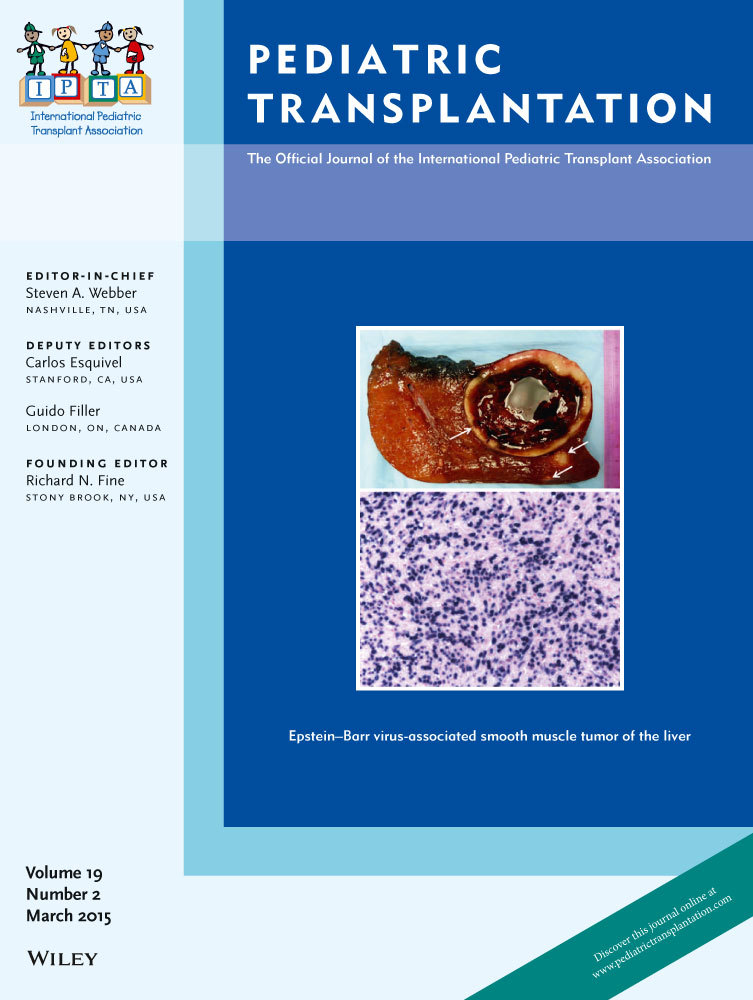Intellectual and academic performance in children undergoing solid organ pretransplant evaluation
Abstract
Although prior research has shown lower intellectual functioning across pediatric solid organ transplant recipients relative to matched siblings or norm comparisons, few studies have assessed intellectual and academic performance prior to transplant across organ groups. The current data examine intellectual and academic functioning in children being evaluated for kidney, liver, or heart transplant. This investigation included intellectual and academic testing data from 195 children and adolescents between the ages of six and 19 yr evaluated for solid organ transplantation. Across organ groups, patients' intellectual functioning as estimated by the WASI/WASI-II at the time of pretransplant evaluation was within the average range, but lower compared to test norms. Patients demonstrated lower estimates of word reading, math computation, and spelling skills compared to the normal population, with the exception of heart patients' word reading and spelling skills and liver patients' spelling scores. Cognitive and academic impairments exist in children prior to transplantation. Findings emphasize the support that patients may require to manage the complicated medical regimen and succeed academically. Routine cognitive and academic assessment can inform healthcare providers regarding transplant patients' capacity to take on increasing medical responsibility and successfully reintegrate into the school environment.




